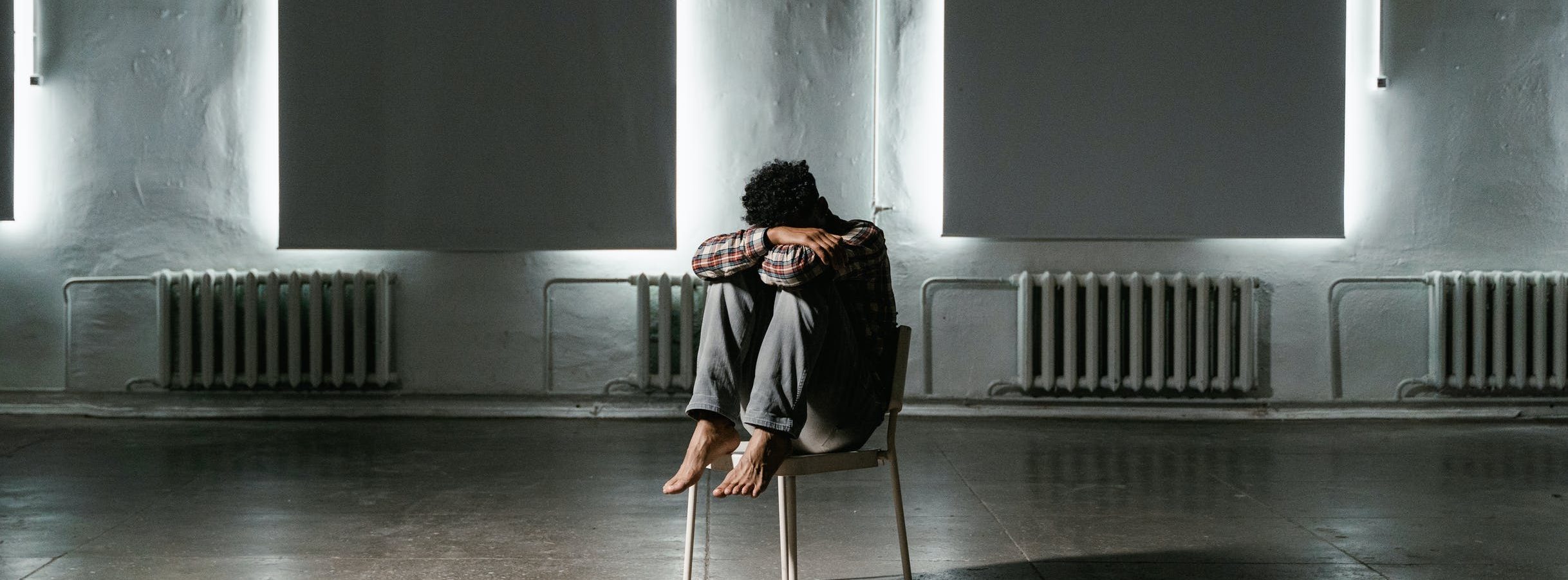Dark clouds hang over our souls like vultures vying for flesh in this broken world. The Adamic curse brought toil and torture, darkness, and death with it. Some souls see this more, others less. But let not sickness and sadness send you to dispair. Let them bring you to the cross of Christ. There, on the cross, died the life of humanity, and there, in the dark, hung the light of the world. Christ knows your sorrow more than you can imagine, yet he redefines and repurposes it too.
If there is one place where dark clouds converged in absolute intensity, where the light of hope seemed so lost, where despair dug deep, it is on the cross of Christ. There, evil threatened Goodness, darkness sought to drown out Light, and death sought to defeat Life. But if you are so keen as to look upon the cross, long enough, if you would ponder what happened at Calvary, then there, sufferer, you will see your Savior sentenced for you, and on the tree, you will behold your salvation.
Christ’s Sorrow
When Jesus tells his friends, “Now, my soul is troubled” (Jn 12:27), he is alluding to Psalm 6:3, the Psalm of David. In Ps 6, the Psalmist is weakened by the Lord’s heavy justice. He implores the Lord not to rebuke him in anger or discipline him in wrath. The Psalmist asks God to be gracious, for his bones and soul are troubled, and to the Psalmist, it seemed that the Lord took long to come to his rescue (v. 1-3).
The longer the hours of darkness lingered, the more the Psalmist’s bones and soul weakened as he wrestled with inward turmoil, disturbance, unsettlement, and confusion (that’s what the word ‘troubled’ means). He was weary of moaning, as every day he flooded his bed with tears and drenched his couch with weeping, his eyes wasting away from grief (v. 6-7). The Psalmist yearned for the Lord’s deliverance, “for the sake of your steadfast love” (v. 4), but it seemed to delay. “But you, O Lord—how long?” (v. 3).
When Christ applied this Psalm to himself, he identified with those who weep and experience emotional turmoil at the world’s troubles. But he also saw himself as he who takes God’s wrath upon himself, the receiver of the Lord’s rod of discipline. In being both, Christ re-signified the world’s suffering and used it as a means through which he redeems both sinners and sufferers—you and me.
Jesus pronounces the words in John 12:27 given the cross, as dark clouds closed in on his soul, as death vied for his flesh. Jesus insisted: “now is the judgment of this world; now will the ruler of this world be cast out” (v. 31). The judgment of this world was when Jesus, like the Psalmist, bore God’s judgment. In suffering our fate, Jesus defeated the ruler of this world, who uses sorrow and sin to terrorize and torture. Christ crushed Adam’s curse so that suffering should not rule or ruin our life. Thus, we live for a higher call, a call procured through suffering, so that our joy might be independent of the troubles that come our way.
Our Meaningful Sorrow
But our sorrow will remain meaningless if not seen in light of Christ’s. If we try to make sense of our suffering apart from Jesus’ story, we will be depressed and downcast, and our pain will appear more significant than it is until we see the cross. We will muse over the injustice of life and the cruelty of existence. We may curse the day we are born or hasten the day of our death.
But we never suffer as Jesus did, though our woes always appear greater than they are when seen introspectively. But given eternity, our afflictions are ‘momentary,’ and compared to Christ, our pain is ‘light,’ no matter how great it appears to us at the moment. Even then, the Lord is present in our pain, both as a co-sufferer and our redeemer. Indeed, the Psalmist continues to say: “Depart from me all you workers of evil, for the Lord, has heard the sound of our weeping” (Ps 6:8). Jesus, too, will say: “And I, when I am lifted up from the earth, will draw all people to myself” (Jn 12:32).
The evil workers scorned the Psalmist, ridiculing him that the Lord had delayed and he won’t come. They suggested that there is no light in his darkness, no life in death, and the dark clouds will not disappear. But the Psalmist calls such talk “evil.” “The Lord has heard my plea; the Lord accepts my prayer” (v. 9). God is present and working, even when dark clouds crowd our view. God works on his timelines and terms. But if we ever doubt his intentions, we must not look further than the cross and the empty tomb.
Jesus was lifted up and glorified. And because he was, he did draw all people, in him, to himself. And as he is lifted, so are the sufferers and sinners. Christ rose from the dead and ascended, a testament that death does not have the final word; sorrow will not triumph—no matter what evil suggests to us.
Our suffering is meaningful when viewed through the cross of Christ. And when we do, we see that “our light affliction, which is but for a moment,” is working for us “a far more exceeding and eternal weight of glory” (2 Cor 4:17). So, why suffer meaninglessly, alone, when Jesus suffered meaningfully for you? Why bear the burden of life’s baggage when you can lay it down at the cross? Jesus dignifies your sorrow by his so that your pain may no longer define you. Look to the cross, sufferer. There, you will see your Savior sentenced for you, and on that tree, behold your salvation!
Read More: God’s Answer to Suffering
Photo Credit: MART PRODUCTION, Pexels.

